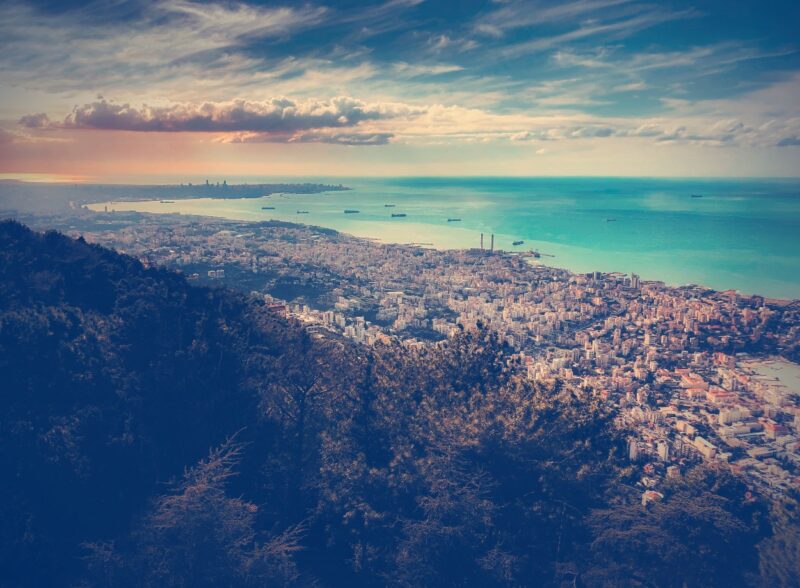Do you sometimes want to wake up to the singularity
we once were?
so compact nobody
needed a bed, or food or money —
nobody hiding in the school bathroom
or home alone
pulling open the drawer
where the pills are kept.
– Marie Howe, Singularity (after Stephen Hawking)
A group of expatriates on a Sunday morning, in line in a foreign suburb, in a foreign country. Lining up, unnaturally—they never would in their country—to vote for change in that country they left—willingly, reluctantly; gladly or sadly; the pairings are not straightforward; for a while, forever, by the confluence of chance and choice that makes people go.
Immigrant, exilée, refugee, expatriate. Nomad, traveler, transient, gypsy. There are many words for people who go. Not enough for all their reasons. There are shades and layers and nuances. Immigrant, for instance, comes from the Latin migrare: “to change residence or condition.” An exile, from exul, is “banished.” A refugee—from re and fugere—has fled violence, violently, in their country of origin, and is seeking shelter in another. An ex-patriate has chosen to abandon their patria, native land…
The result is the same: they left. What place have they then, all these people, standing in line, in a suburb on a Sunday morning? What right or duty to vote for, speak for, or to that no-longer country?
They avoid speaking to each other anyway. And eye contact. And they turn away from the brisk and foreign North American morning chill that nearly destroyed them, that first month in that new land, in the thin coats of their old country. Their shoulders now are stiff and broad in thick coats whose collars are raised. They look squarely, silently ahead. Then, the sound of crinkling.
Of someone opening a plastic bag, unwrapping a few sheets of sandwich paper. Then, a smell…
Mankoushe zaatar.
Zaatar is a mixture of dried thyme, sumac, salt, sesame seeds, some marjoram and oregano and… every family recipe is different and secret. Every family bakery on every corner of every Lebanese street sources and mixes it with oil from specific olive trees, grown in a special plot of land in a specific village. The paste is spread on freshly kneaded dough, and perfectly, goldenly, baked.
The smell of zaatar bursts into the air, into that foreign suburb, that Sunday. And a thousand memories burst into a thousand minds. A thousand hearts burst in an instant. With recognition and ache and a longing they did not know still existed. And a thousand immigrant, exiled, refugee, expatriate strangers—people who left home—are suddenly all back home, for an instant.
A mankoushe zaatar is pulled, flat and bubbling and sizzling, from the oven, folded in half and eaten on the spot; the first bite at the counter, still paying and hesitating between Bonjus orange and pineapple (orange); the last bite outside the furn, before reaching the car, leaning against the car, sipping Bonjus in the sun,because it couldn’t wait. Because the smell is too enticing, the dough too brilliantly warm and pliable, like the morning. Like a Sunday morning … Possible. Like any journey when one is a child and happy and adventurous, and has had a wonderful breakfast, and is ready to face the day and knows home will be waiting, safe and known in the evening, and tomorrow… more manakish.
In English, a person with no country is called “stateless.” In Persian, another word exists, not quite translatable: avareh (آواره), which originally meant “an iron splinter created as a blacksmith hammers out a horseshoe:”
“Picture that shard. The mallet hits a small fissure, in the place where the iron is no longer one contiguous piece. The strike forces the shard to fly. It hurtles through the air, lands on a new surface, and cools down into a new reality …
the initial shock, the jolt, the abruptness of dislocation. Whether you get a visa and sit nervously on a plane bound for a new home, or cross borders on bruised feet, fearing wolves, the gray clouds on the horizon, and the border patrol, it feels like sailing through the air, unmoored, sometimes in frightening free fall.”
Then someone unwraps a mankoushe and asks if you would like some. And there is a place, for you, for them, all these people in line on a Sunday, in a foreign suburb in a foreign country. A place, in that simple gesture, where they can land and be still and be home, even as they are lonely, alone, and afraid, because
“the soul has no culture. The soul has no nations. The soul has no colour or accent or way of life. The soul is forever. The soul is one.”
And for those brave enough to still it, even as the heart feels like a million iron splinters, a million shards, avarehs… life is enormous, and the journey “continually expanding beauty and perfection,”
and that heart? Is “a tiny tiny dot brimming with
is is is is is
All everything home”
